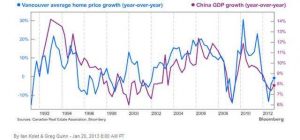After learning about Zappos and the human resource(HR) strategies they use, I was intrigued to learn more about HR and other people’s opinions. During my research, I found a blog titled What HR Leadership Knows, But You Don’t. It touches on how HR information is becoming more readily available and how to use it to better your business.
One thing companies don’t tend to believe is that investing in HR will have great outcomes for the business as a whole. A study found, organizations that have engaged employees are 4 percent more profitable[1]. The blog advises business owners to consider the benefits HR initiatives brings to the work place despite time and cost associated. Zappos clearly understands this. The CEO and HR work tightly together and are willing to make improvements to the workplace. Although it comes with a large cost, especially for Zappos who has invested in many initiatives, such as health benefits, free food, and work space equality, they continue to make a profit and create an overall more pleasant customer experience.
The second topic mentions that HR technology is eliminating some of the task that HR executives are faced with. This leaves some asking why to pay for something that they already do? However, the point isn’t to eliminate employees with machines, but to rather give more time to HR executives for more important tasks that the technology cannot do.
The final point made is the amount of data available due to the advances in technology. One of the main talking points here is that company leaders don’t fully understand these HR metrics. In fact, one of the issues, is that there is a lack of support from executives with the HR department. The takeaway here is to work very closely with your HR team. It is suggested to often ask questions of why certain decisions are being made. Not only will this improve general knowledge of HR and can help to make better decisions. Zappos operates very closely between all departments. From seeing their workplace, they have very successfully created a place of work that all employees enjoy being at.
Human resources is a key department in any business. After learning about Zappos and reading this blog, I’ve recognized this and can see that HR investments are beneficial to a company. If I were asked whether to invest in HR before this, I would’ve said no as I didn’t even really understand it. I can imagine a similar case, maybe more educated, from a business executive, which is why understanding HR is an essential task for business to improve not only profit but generate an overall better workplace and experience for employees and customers.
Word count:450
[1] https://www.allbusiness.com/hr-leadership-knows-dont-114130-1.html
Picture: http://www.workforce.com/2017/04/07/evolution-hr-executive-personnel-organizational-secret-weapon/


 This can be seen through data provided by Bloomberg News. Eliminating the amount of foreign investment could help combat the increasing prices within the housing market.
This can be seen through data provided by Bloomberg News. Eliminating the amount of foreign investment could help combat the increasing prices within the housing market.

